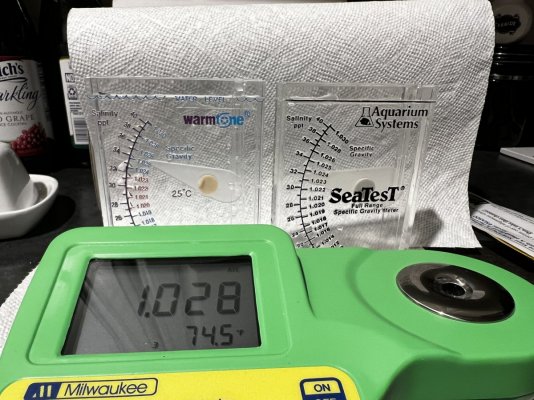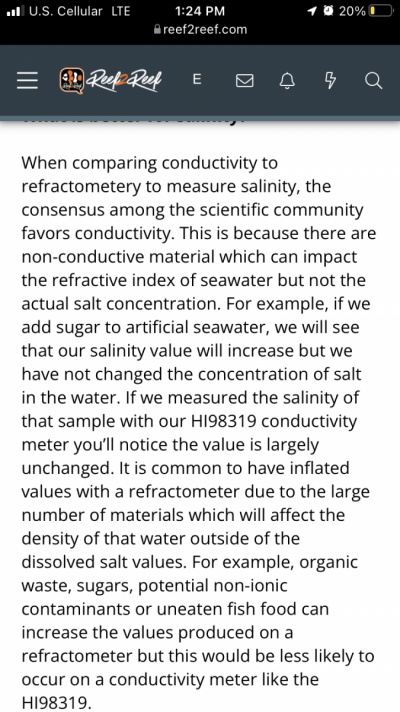I purchased a reef tank second hand that was well established. The guy I picked it up from said he didn’t measure salinity because he just always removed exactly 4.5 gallons and replaced exactly 4.5 gallons. He said every time he measured he got inconsistent measurements. Well I see the struggle now. I have a Milwaukee MA887 as well as two hydrometers. I watched BRS’s video on the salinity tester and it says to not measure with multiple devices-stick with one and stay with it.
My issue is since my latest water change outside the typical 4.5G my RBTA has shrunk up lost all its color and is now brown.
My parameters are all stable the only thing I can think of is salinity… what should I do? What do you guys do to get an accurate salinity measurement?
if it helps here’s my parameters

My issue is since my latest water change outside the typical 4.5G my RBTA has shrunk up lost all its color and is now brown.
My parameters are all stable the only thing I can think of is salinity… what should I do? What do you guys do to get an accurate salinity measurement?
if it helps here’s my parameters
| Alk | 9.2 |
| Calc | 461 |
| Ph | 7.9 @75.5 degrees |
| Phosphate | .43 (have to change my socks) usually is .14 to .24 |
| Magnesium | 1380-1410 |
| Salinity | 1.028 @ 75 degrees |





















